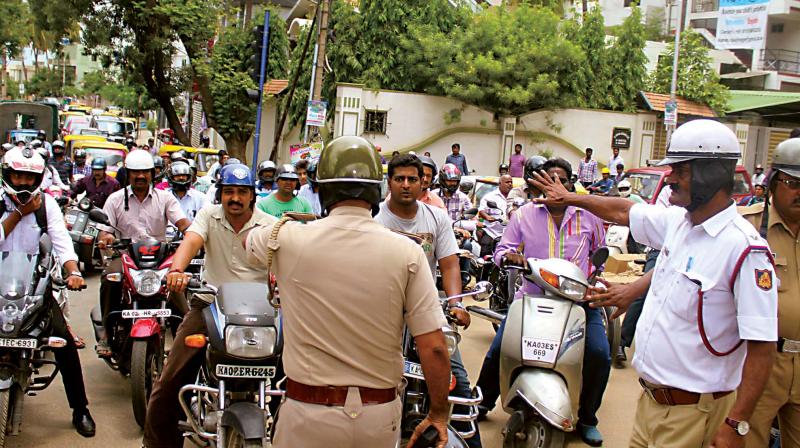Want better road behaviour? Let traffic fines stay
One of the most frustrating things in our city is the traffic.

If you are one of those who think the new traffic fines are exorbitant, here’s some good news for you: you don’t need to pay a single rupee! Just drive safe and do not violate any of the traffic rules you learned while getting your driver’s license!
One of the most frustrating things in our city is the traffic. Beyond all the macro issues like lack of mass public transport and explosion of private vehicles another significant factor contributing to the chaos on the roads is - bad driving.
Driving in the opposite lane, blocking intersections even after the signal turns red, driving on footpaths and taking U-turns where they don’t exist - every little junction turns into a battlefield that causes delays to everyone. Lack of respect for rule of law and a total lack of fear of being caught and awareness that the fines are small amounts make people break the rules.
I must confess that I was a bit surprised by the public opposition to the new traffic fines. I am even more surprised that the state government seems to be buckling under public pressure and is on a path to reduce the fines.
We must first ask ourselves, what is the purpose of traffic fines? Are the current fines serving that purpose? Will the new traffic fines change behaviour?
The main purpose of traffic fines is to act as a deterrent so that motorists drive in an orderly manner and not cause accidents. Road accidents take lakhs of lives away every year and make many more lakhs of them disabled. If the fines are too low they don’t serve the purpose as we can see. In fact, the traffic fines haven’t been increased in decades and perhaps it is the only thing that is not inflation adjusted! The hefty fines will certainly improve driver behaviour and thereby reduce fatalities and injuries. This is the single biggest reason why I support the new fines.
Most of us are law abiding citizens but a small percentage repeatedly breaks the laws and causes huge inconvenience to everyone else. To save a few minutes they end up wasting hundreds of hours of productive time for many others. Those who caused inordinate traffic delays need to be told that their behaviour is unacceptable in a civilised society and the hefty fines is probably the best way to convey that message. People value time and money and if the new fines take both time and money from erring motorists they will make a big positive difference.
To those who link bad roads to traffic fines and ask why should we pay more when the roads are bad, I ask them, will you accept bad roads if the fines are low? Are more potholes acceptable if they reduce fines? They are unrelated. We must demand better roads, better infrastructure, better policing with or without traffic fines. Just because traffic fines have been increased we can’t outrage about something we are quiet about all these days. In fact, the government services like schools and hospitals are as worse as the roads but I don’t see any outrage. We should ask ourselves, why?
There is a line of argument that the fines are too high for low wage earners. I accept that a sudden raise of fines may come as a shock and perhaps a better approach is to progressively increase fines over a year (say a 25% increase every 3 months) so that people are aware of the new fines and not find themselves in a difficult situation financially because of something they are unaware of.
I think the new fines should stay. I think the fines collected should be spent on road safety, public transport and technology to improve our transport systems.
One of the viral social media posts stated that a biker was fined Rs 17,000. A penalty of Rs 10,000 was slapped for drunken driving, Rs 5,000 for not having driving license and another Rs 2,000 for not wearing the helmet. The cost of the fine was higher than the cost of the bike. I think the cost of the fine is way less than the loss of life or an accident that this rider would have caused if he was allowed to roam freely. It is not the cost of the vehicle we should be concerned about. It's the cost of lives at risk which should be considered more than anything else.

